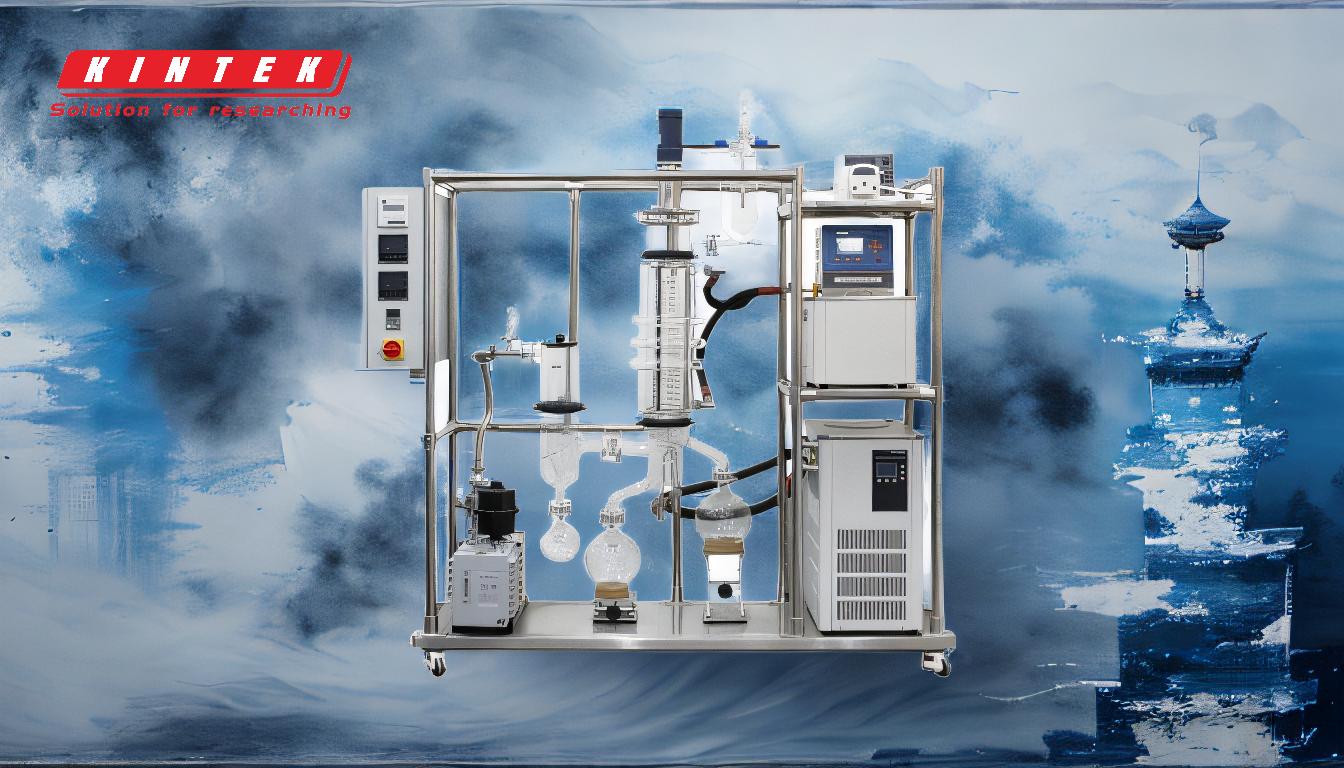Distillation and fractional distillation are both techniques used to separate mixtures based on differences in boiling points. The main difference lies in the complexity and efficiency of the separation process. Simple distillation is effective for separating liquids with significantly different boiling points, while fractional distillation, which employs a fractionating column, is designed to separate liquids with closer boiling points. The fractionating column allows for multiple stages of condensation and evaporation, enhancing the separation of components with similar volatilities. This makes fractional distillation more effective for complex mixtures, such as those found in petroleum refining or alcohol purification, but it is also more expensive and time-consuming compared to simple distillation.
Key Points Explained:

-
Presence of a Fractionating Column:
- Simple Distillation: Does not use a fractionating column. It is suitable for separating liquids with significantly different boiling points (e.g., water and salt).
- Fractional Distillation: Utilizes a fractionating column, which provides multiple stages of condensation and evaporation. This allows for the separation of liquids with closer boiling points (e.g., water and ethanol).
-
Efficiency and Complexity:
- Simple Distillation: Less complex and more straightforward, but limited in its ability to separate components with similar boiling points.
- Fractional Distillation: More complex due to the fractionating column, which increases the efficiency of separation for components with similar volatilities. This makes it ideal for industrial applications like petroleum refining and alcohol purification.
-
Temperature Gradient and Separation:
- Simple Distillation: Relies on a single boiling and condensation process. The temperature remains relatively constant during the distillation.
- Fractional Distillation: The fractionating column creates a temperature gradient, allowing for continuous condensation and evaporation. This gradient enhances the separation of components with close boiling points.
-
Applications:
- Simple Distillation: Commonly used in laboratories for purifying water or separating mixtures with distinct boiling points.
- Fractional Distillation: Widely used in industries for refining crude oil, purifying alcohol, and separating complex mixtures like essential oils.
-
Cost and Time:
- Simple Distillation: Less expensive and quicker, making it suitable for simpler separations.
- Fractional Distillation: More expensive and time-consuming due to the additional equipment and stages of separation, but necessary for more challenging separations.
-
Industrial Relevance:
- Simple Distillation: Limited to basic separations and small-scale applications.
- Fractional Distillation: Essential in large-scale industrial processes where high purity and precise separation are required, such as in the production of gasoline or high-purity solvents.
By understanding these key differences, a purchaser can make informed decisions about which distillation method to use based on the specific requirements of their application, whether it be for laboratory use or industrial-scale production.
Summary Table:
| Aspect | Simple Distillation | Fractional Distillation |
|---|---|---|
| Fractionating Column | Not used | Utilized for multiple stages of condensation and evaporation |
| Efficiency | Less efficient for close boiling points | Highly efficient for separating components with similar boiling points |
| Complexity | Simple and straightforward | More complex due to additional equipment |
| Temperature Gradient | Single boiling and condensation process | Creates a temperature gradient for enhanced separation |
| Applications | Lab-scale purification (e.g., water and salt) | Industrial-scale refining (e.g., petroleum, alcohol) |
| Cost and Time | Less expensive and quicker | More expensive and time-consuming |
| Industrial Relevance | Limited to basic separations | Essential for high-purity, large-scale processes |
Need help choosing the right distillation method for your application? Contact our experts today!










